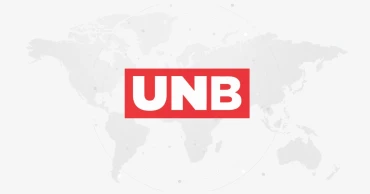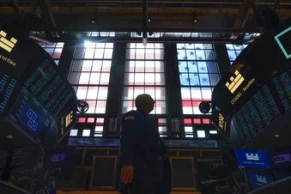Analysts
Small investors’ woes in capital market unlikely to end before national polls: Analysts
Small investors in the stock market are frustrated as their wait for a good time gets delayed by the Bangladesh’s ongoing political unrest.
The political impasse over who should oversee the upcoming national polls is thwarting the stock market’s recovery from Covid-19 pandemic and the Ukraine-Russia war.
The small investors’ shares are stuck on the floor price (minimum sale rate) and overall economic downfall. This has been painful for many unfortunate small investors of the capital markets, according to market analysts.
Policymakers and the Bangladesh Securities and Exchange Commission (BSEC) paint a rosy picture for small investors saying that stock markets will rebound with enlistment of new companies and injection of big investments. But the situation for the small investors seems to be hopeless.
Read: Economy buffeted by political unrest amid declining forex reserves: Analysts
A large number of shareholders have remained stuck with their investment in the capital market for over a decade amid fading hopes.
“No one, not even the regulator or stock market authorities pay heed to their screams,” Abdul Latif, a grocery owner and one of the affected investors, told UNB in a broken voice. He said he invested Tk13 lakh in 2011 to buy shares of different companies listed in Dhaka Stock Exchange (DSE).
After graduation in 1998 Latif found no suitable job and then started a small business in the Motjheel area in 2002 with support from his father-in-law. He made a good profit in the business and invested money in the share market.
In 2010 Latif invested around Tk13 lakh of which 5 lakh was his own and 8 lakh borrowed from relatives. All of his investment was stuck in shares of different companies due to a big scam in the capital market in 2011.
Read: Govt aims to collect 11.2% of GDP in taxes by FY 2025-26
Like Latif, thousands of investors lost their hard-earned capital in 2011, and after that, some were able to gain part of the capita. But most of them left the capital market losing nearly all investment.
Many of such investors are still in the market hoping for a rebound in the DSE, but without any good news.
There is no sign of lifting the floor price before the next election. However, economists say that people do not have confidence in the market. BSEC advises investors to be patient until the general election is held by January next.
Dr ABM Mirza Azizul Islam, an economist and a former adviser of a caretaker government, told UNB that there has been a crisis in investors' confidence in the stock market for a long time.
“To this are added various economic crises, the international situation, and everything including elections and national politics,” he said.
Read: Despite challenges, govt hoping to restore economy’s pre-Covid momentum in current fiscal
As a result, first of all, steps should be taken to eliminate the trust crisis. In this case, trust should be ensured by establishing good governance, he said.
That is, the investors have to be given the assurance that if someone steals their money through manipulation, they will be prosecuted. Besides, the supply of good shares should be increased. Through these two steps, it is possible to eliminate the market problem. But it is not easy at all, said Dr Azizul Islam.
Dr Abu Ahmed, former professor of Dhaka University’s Economics Department, said there are two crises in the market: one on the demand side and the other in investor confidence.
On the supply side, the problem is that there are fewer good companies. As a result, it is a win-win situation for manipulation and syndicates, he said.
Read: Country’s first electrical testing laboratory on the cards
All in all, the stock market is currently in an unstable condition and gradually the situation is getting worse. The passage from here is very difficult, he said.
According to market insiders, the stock market situation is in a dire. The situation is not improving due to political uncertainty ahead of national elections, increases in commodity prices, and various international issues.
The market has lost its importance to the government as well. For those who are not directly involved with government policymakers, the stock market is a source of irritation.
Their thinking is like this - if there is no stock market, there will be no problem in the country. For these reasons, the government wants to hold the market with floor prices until the next national election. This brings an opportunity for syndicates blessed by the regulatory body to be controlling the market, the market insiders said. They spoke on condition of anonymity.
BSEC Chairman Professor Shibli Rubayat Ul Islam told UNB in this regard that the global situation is not in the hands of the regulator or the government. Investors should beware of investing with any company depending on rumours.
He also said due to a lack of financial literacy, people are sometimes investing in weak shares with an expectation of big profit which is not the right way of investment.
Read: BSEC sits with stock market stakeholders Thursday after drastic fall of share prices
2 years ago
Wall Street braces for earnings to get hit by inflation
Wall Street expects companies to face a reckoning with the realities of hot inflation, a slowing economy and rising interest rates in the latest round of earnings results.
Analysts are forecasting an earnings contraction of about 3.5% for the fourth quarter, according to FactSet. That estimate, as of the end of last year, is an about-face from forecasts back in September of 3.5% growth and a sharp reversal from 8.5% growth forecasts in June.
The dismal forecast for the fourth quarter follows is part of a trend of shrinking earnings growth throughout 2022 as inflation tightened its grip on consumers. Spending remained strong in many retail areas and companies raised prices on everything from food to clothing to offset the impact of higher raw material costs and inflation in general. Many companies went further than just maintaining profits and increased their profit margins.
Corporate profits, though, aren’t likely going to continue bucking an economy that showed clear signs of damage during the fourth quarter, particularly with consumers increasingly cutting back on spending. Many analysts have been forecasting that the economy will slip into some level of recession in 2023 and company profits are starting to reflect that. The Federal Reserve’s aggressive fight against inflation carries the risk of slowing the economy too much.
Read more: Wall Street points lower after two days of gains
Morgan Stanley, in a December report, warned investors to brace for a rough round of corporate earnings in the coming month and into the rest of 2023.
“The fixation on inflation and the Fed continues, but markets appear to have moved past it and onto the real concern— earnings growth/recession,” the report said. “Rates and inflation may have peaked but we see that as a warning sign for profitability, a reality we believe is still underappreciated but can no longer be ignored.”
Analysts expect communications companies and technology firms to be among the biggest losers during the fourth quarter. Lower demand has been cutting into technology product sales and that has in turn led to warnings from chipmakers and other companies. Computer maker HP and chipmaker Micron have both announced job cuts as a part of their plans to deal with weaker demand. Analysts are forecasting a slight earnings contraction for both companies.
The weakening economy has cut into advertising budgets, which have raised concerns for companies including Facebook and Google. Retailers and other companies that rely on discretionary spending are also expected to get hit hard in the fourth quarter.
Read more: Asian shares decline after retreats on Wall Street, Europe
Analyst expect energy companies to keep powering past other sectors as the big earnings winners during the fourth quarter. The sector has outperformed all others in 2022 amid higher oil and natural gas prices.
3 years ago
Analysts underline Middle East’s key importance to Bangladesh
The importance of the Middle East to Bangladesh in terms of geo-politics, geo-economy and geo-energy has been highlighted at a seminar here.
The region houses two of the holy mosques and key players of major significance to the Muslim Ummah, and thus Bangladesh, due to its religious Muslim majority and its OIC membership, does hold the region in high regard in terms of strategic significance, said analysts speaking at the event.
They said Bangladesh is also dependent on the Middle East for inward remittance so it needs to lean towards undertaking actionable policies to ensure its stronger footprint in the region and to help mitigate the turbulence that has befallen.
Bangladesh Institute of Peace and Security Studies (BIPSS) and Dhaka Tribune hosted the BIPSS-Dhaka Tribune Roundtable titled, "The Changing Dynamics of the Middle East: Implications for Bangladesh'' at a city hotel on Wednesday.
Also read: 50 Years of Relations: Romania keen to deepen ties with Bangladesh
BIPSS President Major General (Retd) ANM Muniruzzaman, Dhaka Tribune Editor Zafar Sobhan, Dhaka University Prof Lailufar Yasmin and Assistant Prof of the Department of Economics at East-West University Parvez Karim Abbasi spoke at the discussion.
They observed that the Middle East has been a hotbed of turbulence, conflict and insurgencies for decades.
Even after all these years of destruction and bloodshed, the chaos is not showing any sign of slowing down anytime soon.
As a matter of fact, the multifaceted phenomenon currently ongoing in the region is only becoming more complicated and dynamic.
The ever-changing landscape, with the already existing shaky governance in the Middle East region, tends to have implications on a global scale and spillovers beyond comprehension, said the speakers.
The roundtable was attended by diplomats, scholars, security experts, and youth representatives from various disciplines.
Muniruzzaman laid out how the power architecture inherited from the colonial rule in the Middle East had condemned the region to perpetual instability, leaving behind questionable borders and dissatisfied ethnic minorities, ultimately fueling state and non-state actors to challenge the existing state and territorial sovereignty.
Pondering the crisis in Lebanon, Lailufar Yasmin elaborated on the possible spillover across the region and also talked about the ongoing challenges and the role of hard and soft diplomacy in the Middle East.
She went on to shed some light on the crisis in Yemen, the post-election turmoil in Iraq and their overarching implications and discussed the growing instability in Palestine and how the world community has presumably forgotten about the nation itself.
She also focused on the fresh talks leading to the revival of the U.S-Iran Nuclear deal and the aftermath that will ensue following the revival.
Parvez Abbasi explained the underlying factors, interfaces, and different caveats concerning the geo-economic realities of the Middle East.
Also read: Bangladesh, Japan sign deals on ODA yen loan, grant aid
He talked about the rising tension within the Arab youth and how this factor can lead to the creation of "Arab Spring 2.0" and highlighted the key facets of the current Syrian Civil War and whether Syria will be able to reintegrate itself into the global system.
Abbasi analysed the different aspects of the energy transition that the world is going through and its overall implications on how it can potentially lead to the socio-economic fallout of the region.
3 years ago


.jpg)

